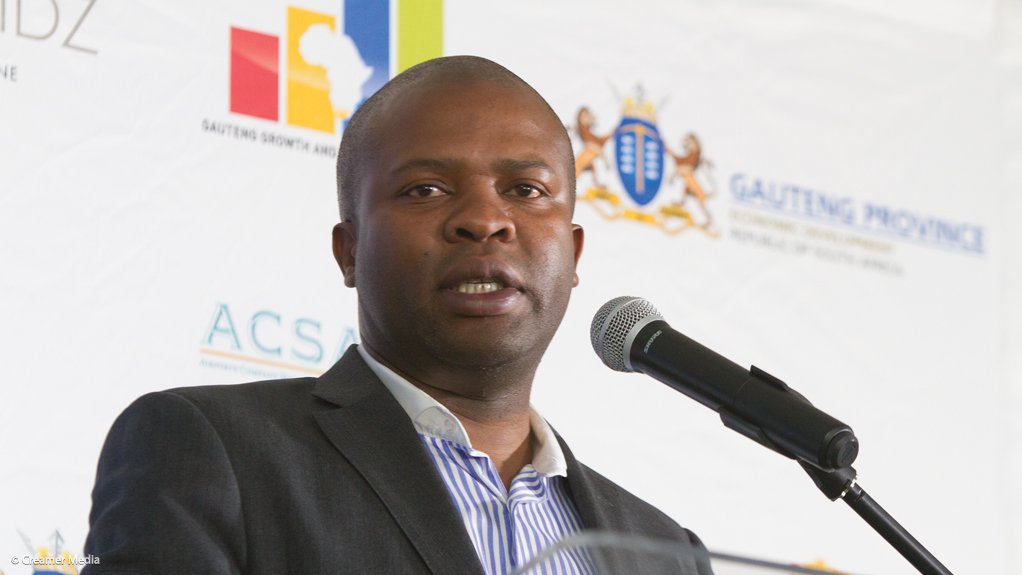South Africa’s biggest provincial economy, and the fourth biggest economy in Africa, continues to face significant challenges, including unemployment and a high cost of living.
Gauteng’s unemployment rate, at 33.7%, is higher than the national average of 32.9%, and the ongoing cost-of-living crisis continues to pose a significant constraint on households.
Newly appointed Gauteng Finance and Economic Development MEC Lebogang Maile recently outlined the growth of the province, which boasts a GDP of just over R2.4-trillion – accounting for almost 34% of the national GDP and more than 10% of the total GDP of the sub-Saharan region.
The economy has tripled since 1994, when it stood at R710-billion, while the Gauteng GDP per capita grew from R24 095 in 1994 to R126 547 in 2022.
He noted that, according to the South African Revenue Service, this made it the province with the most taxpayers and the highest average taxable income per taxpayer.
Gauteng’s population has doubled since 1994 to over 15.1-million in 2022, accounting for 25% of the total population in South Africa, with 4 out of 10, or 40%, of the people entering the labour force in South Africa being based in Gauteng.
However, during the Covid-19 pandemic in 2020, Gauteng had the worst economic contraction of all provinces, the impact of which continues to be felt across most industries, with manufacturing, construction, tourism, agriculture, retail and wholesale trade and domestic services, having yet to recover.
“Owing to the pandemic, several infrastructure, maintenance and development projects ran over the prescribed time of delivery, with significant cost overruns.”
Gauteng Finance and Economic Development Department, recognising that the ongoing cost-of-living crisis was posing a significant constraint on households, was accelerating delivery of high-impact projects with a specific focus on sectors with high labour absorption capacity, Maile said.
The department will be collaborating with the private sector to resolve some of the structural mismatches in the economy.
One priority will be a focus on revenue collection, anchored around increasing existing own revenue resources and modernisation of processes to increase efficiency, cost effectiveness, client satisfaction and eliminate loopholes in terms of collection mechanisms.
“Through financial and economic planning, and specifically, infrastructure development, the provincial government aims to generate revenue in order to ensure the provision of services and reindustrialisation efforts. Critical to this will be promoting compliance and leveraging public procurement to promote the township economy,” he said, noting that clear targets would be set for relevant officials and the targets would be reflected in the provincial budget in the next iteration of the medium-term expenditure framework.
Further, the province aims to intensify efforts to finalise the establishment of a provincial State bank.
“One of the key objectives of this bank will be investing in projects characterised by low private sector investment and high social return. A full business plan informed by a thorough business case is underway and will be completed by the end of this financial year.”
Alongside this, the province is facilitating the provision of suitable infrastructure, including worksites, social amenities, business information centres and common use facilities necessary for the development of township-based enterprises.
In addition, the department will invest in the manufacturing capacity of township enterprises to minimise reliance on procuring goods from major retailers.
The Special Economic Zones (SEZ) programme, supported by intensive investment promotion, will be used to accelerate reindustrialisation of the Gauteng City Region.
“The department will continue to support investment in the automotive sector, with special attention given to electric vehicles and autonomous vehicles,” Maile added, highlighting that, working with national counterparts, the department will double its efforts in resolving the logistical constraints faced by the automotive sector.
In addition to this, the province assures support of investment in the green economy sector at the Vaal SEZ and agroindustrial investment in technology, capital equipment and financial solutions across the West Rand SEZ, as well as support for mineral beneficiation and financial technology at both the OR Tambo SEZ and City of Johannesburg economic corridor.
“The Gauteng Growth and Development Agency will be tasked with coordinating all provincial departments to take stock of their contribution towards making these SEZs successful.”
Meanwhile, structural transformation of the regional economy in sectors like chemicals, clothing, textile, leather and footwear, electronics, aerospace and construction will see the province contribute to increased skills, technology, finance and infrastructure growth in marginalised areas.
“These areas should increase their economic output proportionally and participate in high-value industries too. Linked to this, the department will establish a provincial government-owned pharmaceutical company that will prioritise the production of vaccines. A business case and business plan for this project will be done this financial year,” he continued.
The department further aims to increase its pace in improving access for youth, women and people with disabilities to development finance, artisanal skills, technology and economic infrastructure closest to their areas of residence, with an urgent summit with nongovernmental organisations and community-based organisations operating in these crucial areas of development to be convened in tandem with the relevant departments in the course of the next financial year.
“Through these and other interventions, some of the more salient challenges confronting the provincial fiscus and the standard of living of Gauteng residents will be alleviated. Over the coming weeks, more plans in the pipeline for the Gauteng economy will be announced, in line with ensuring transparency and accountability to the residents of the province,” he concluded.
EMAIL THIS ARTICLE SAVE THIS ARTICLE ARTICLE ENQUIRY
To subscribe email subscriptions@creamermedia.co.za or click here
To advertise email advertising@creamermedia.co.za or click here











